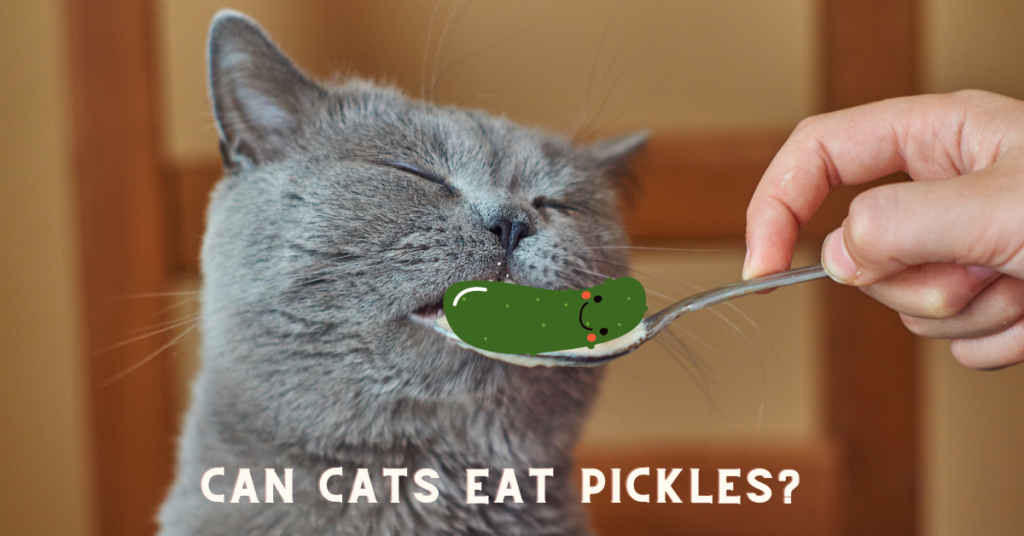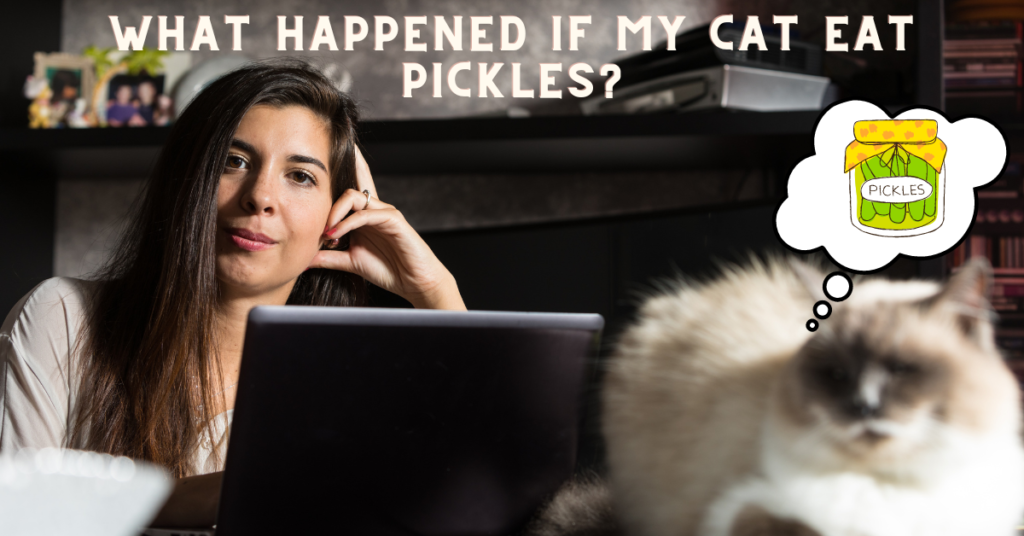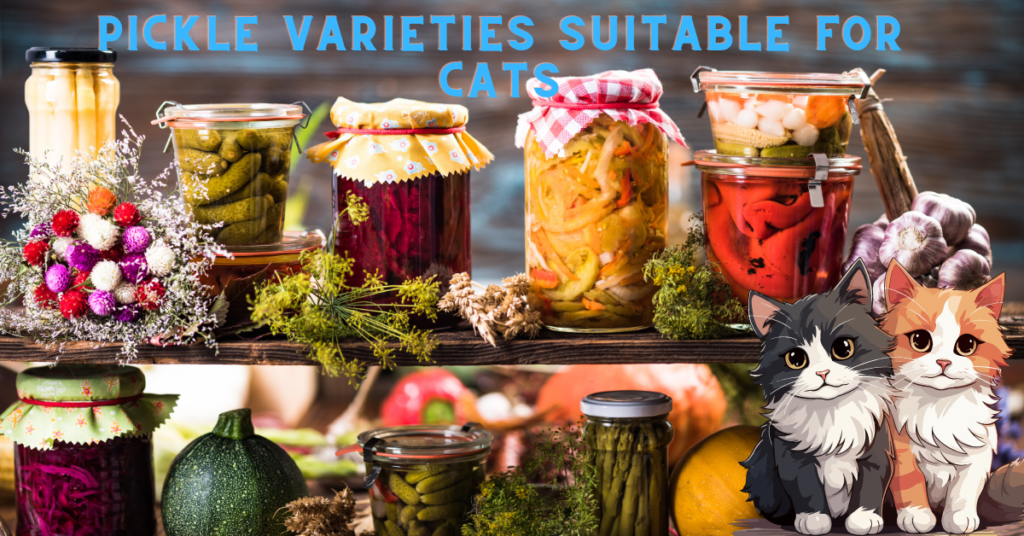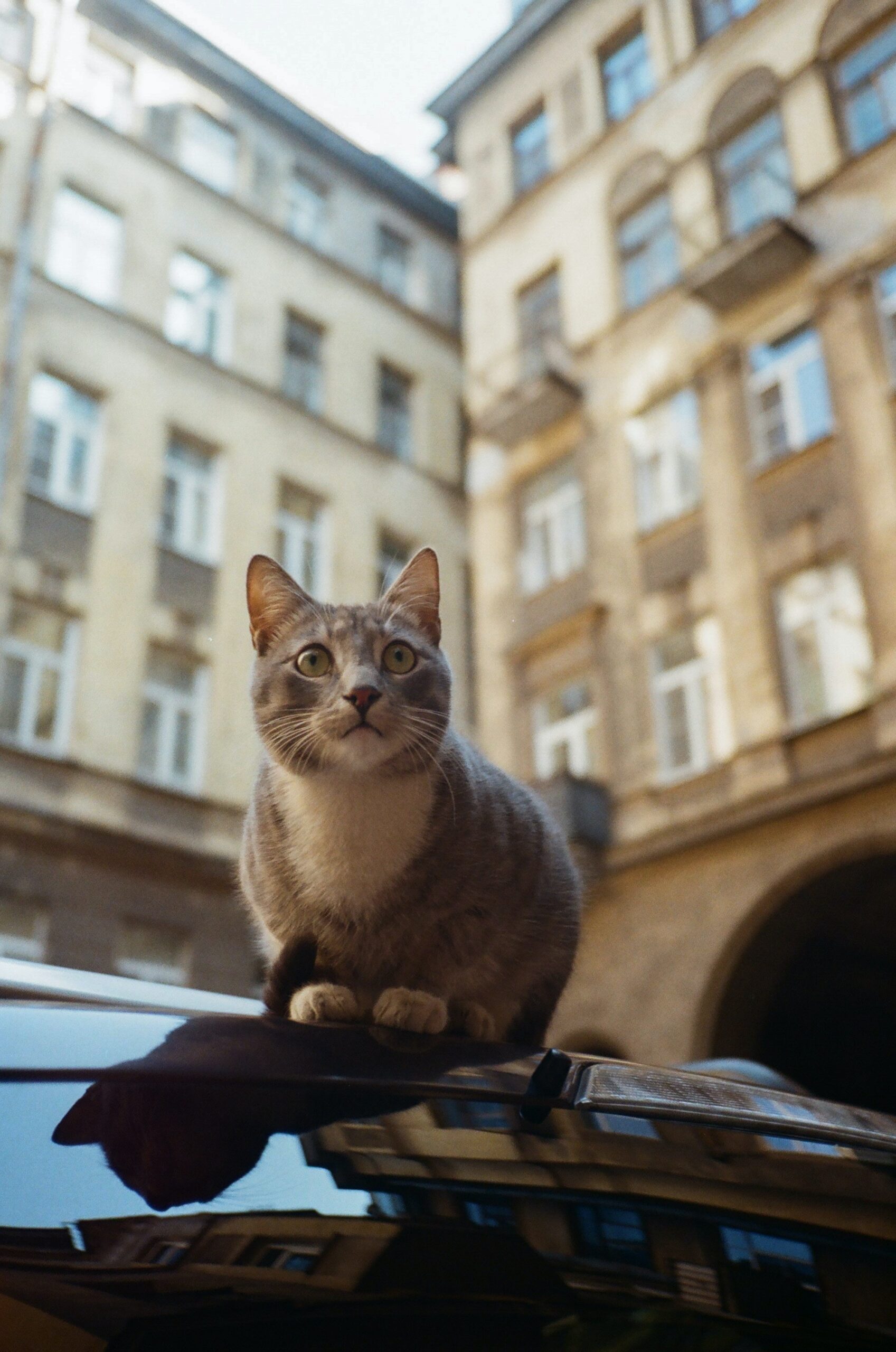


Imagine eating a pickle and enjoying the zingy crunch with interest as your cat looks on. It makes sense for a cat owner to wonder,” Can cats eat Pickles?” As pet owners, we know how curious our furry friends can be. And we want to share our happiness with them; food is no exception. In this article, we’ll dig into the world of kitty palates and consider whether feeding your cat pickles is safe. So, let’s go on this journey to find out whether pickles are a delicious treat or should be avoided by cats.
As a cat owner, you should know cats are curious animals renowned for their unpredictable taste preferences. As devoted cat owners, we frequently wonder if our feline companions can enjoy the same meals that we do. That is why one such question that can cross your mind is, “Can cats eat pickles?” Let’s see if pickles are a tasty treat for our animal friends.
Can Cats Eat Pickles?
Can cats eat pickles? The solution is more complex than the issue itself. Pickles are not the best meal for our feline friends, even though they are not inherently poisonous to them. As cats are obligate carnivores, their bodies are built to function best when they consume a diet high in animal-based proteins. Contrarily, cucumbers used to make pickles are marinated in vinegar, brine, and other spices. Cats may need help with this combination.
What Happened if My Cat Eat Pickles

So, let’s talk about pickles for a moment. Don’t get me wrong, jams are delicious and familiar, but a few issues must be discussed.
- Pickles frequently soak in a salty brine solution, which might result in excessive sodium intake for cats. High salt intake can stress a cat’s kidneys and raise the risk of health problems like hypertension and kidney difficulties.
- Pickles’ vinegar and spices could cause a cat’s sensitive digestive tract issues. Because cats’ taste receptors differ from those of humans, certain intense flavours, such as vinegar and spices, may upset their stomachs.
- Some store-bought pickles can include artificial preservatives or additions that are not healthy for cats to consume. Ingesting such substances can cause digestive pain in cats because they have unique nutritional needs.
Different Varieties of Pickles Suitable for My Cat or Not

It’s crucial to consider the various pickle varieties and their potential effects on our furry friends as we go deeper into the realm of cats and pickles. Let’s examine particular pickle varieties to see if cats can eat them.
Dill Pickle Chips:
Can cats eat dill pickle chips? It’s a good idea to avoid giving your cat dill pickle chips. Dill and garlic are two potent flavors familiar in dill pickle chips. Unfortunately, cats don’t tolerate certain flavors well and could have digestive issues. Your cat should not eat garlic as it harms the cat. It’s best to keep dill pickle chips out of your cat’s reach to protect their safety.
Pickled Ginger:
Can cats eat pickled ginger? It’s best to be safe and keep your cat from pickled ginger. Pickled ginger has a strong flavor that can upset your kitty friend’s sensitive digestive tract. Additionally, the probable chemicals present in pickled ginger may cause gastrointestinal distress. It’s best to avoid giving pickled ginger to your cat because their health is essential.
Pickled Herring:
Can cats eat pickled herring? Herring can provide cats omega-3 fatty acids, but pickled herring raises a few issues. The pickling procedure introduces substances like salt and vinegar, which could cause problems with your cat’s digestive system. It’s better to choose essential, cooked herring if you want to give your cat a fishy treat. By doing this, you can offer an omega-3 source without running the risk of stomach problems.
Bread and Butter Pickles:
Can cats eat bread and butter pickles? It is best to keep bread and butter pickles out of the reach of your feline buddy. These pickles often have sugar added for sweetness and a variety of spices. Bread & butter pickles are a poor choice for your cat’s snack due to their high sugar content and the risk of stomach discomfort from the herbs. Your cat’s stomach will thank you if you choose an alternate treat.
How to Stop My Cat from Eating Pickles

Although it’s cute to think about feeding your cat human food, it’s essential to remember that cats have specific nutritional requirements. There are numerous alternatives to pickles that are safe and enjoyable for your cat when treating your furry buddy.
Commercial cat snacks:
Many different cat treats on the market have been created to give your cat a healthy and delicious snack. There is something for every feline palate as these snacks come in various flavors and textures, from crunchy to soft.
Cooked Meat:
As we know, cats are carnivores; lean-cooked meats like chicken, turkey, and beef can make fantastic substitutions for pickles. Ensure the meat is thoroughly cooked without flavor, spices, and other ingredients. Do not feed your cat any bones or fatty foods.
Give Your Cat Fish Treats:
Many cats enjoy fish, and there are cat treats made from actual fish that your furry buddy might enjoy. Look for cat-specific treats with no dangerous components and are made just for cats.
Treat Your Cat with Fresh Catnip:
Natural herbs like catnip are enticing to many cats. You can buy catnip-infused snacks and toys or give your cat fresh catnip leaves. Catnip does not affect all cats, so before giving it to your cat regularly, watch how they react.
Plain Cooked Eggs:
You can give your cat plain cooked eggs as they are rich in protein. You can give your cat a tiny portion of simple boiled eggs as an occasional treat. Don’t season or add any other ingredients.
Offer Your Cat Freeze-Dried Treats:
The primary flavors and nutrients of the ingredients have been preserved in freeze-dried treats. These delicious and valuable choices for your cat are frequently prepared from meat, fish, or fowl.
Treat Your Cat with a Small Portion of Cheese:
While most cats cannot take lactose, some can consume little cheese. Give your pet an occasional treat of a tiny piece of plain, low-lactose cheese. Be careful; not all cats can consume dairy without experiencing stomach problems.
Baby Carrots or Green Beans are the Best Options:

Consider giving your cat a tiny piece of a lightly cooked baby carrot or green bean if she likes the crunch. These vegetables can be a tasty, healthful treat and are low in calories.
Bottom Lines
In conclusion, can cats eat pickles? Pickles may cause digestive distress and raise health risks, so it’s better to avoid feeding them to your cat. Cats have certain dietary preferences that must be met for their general well-being. Choose cat-friendly alternatives that fit their predatory nature to share treats with your feline buddy. Always put your cat’s health and happiness first; picking the correct treats is a positive step in that direction.

